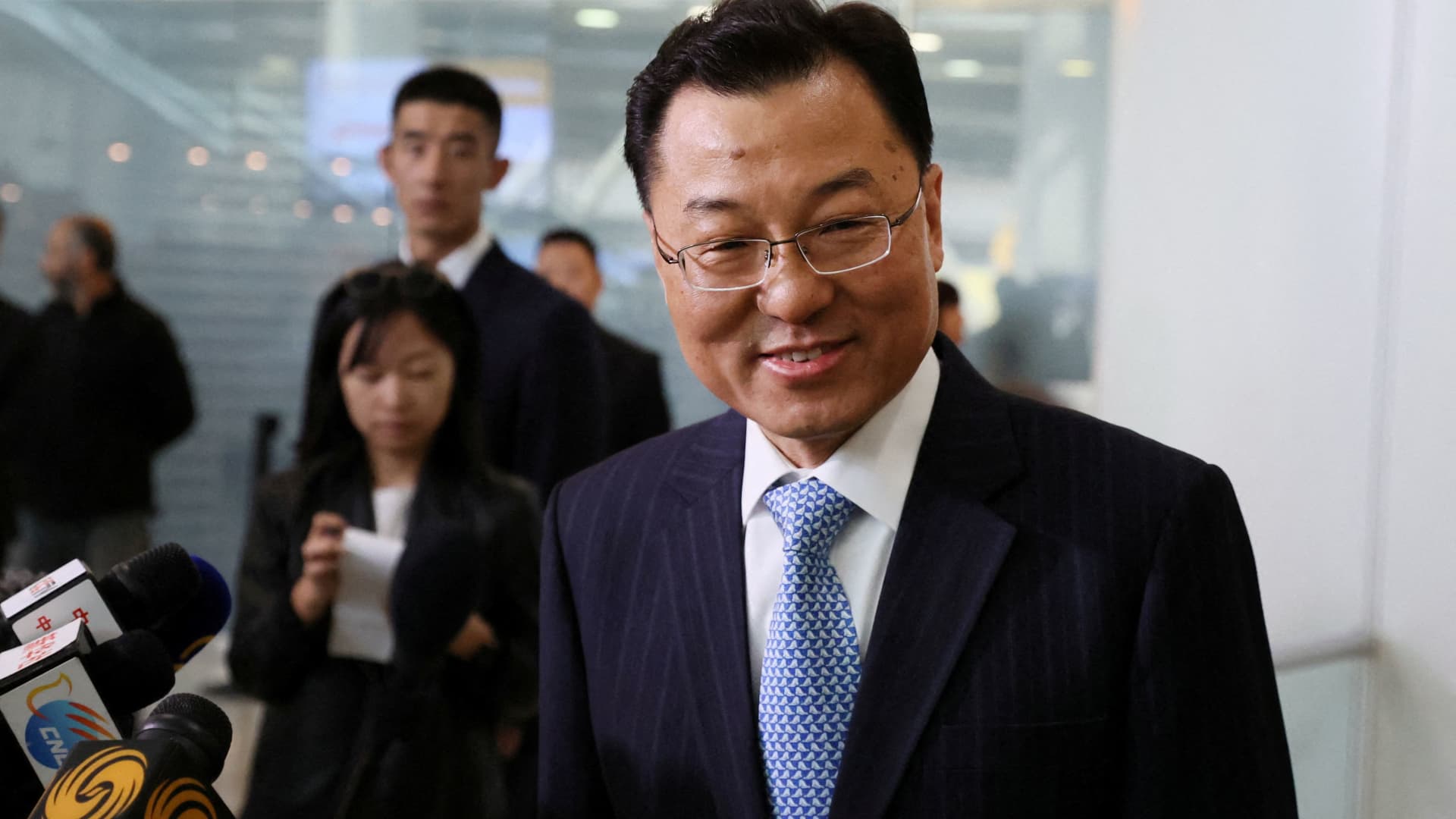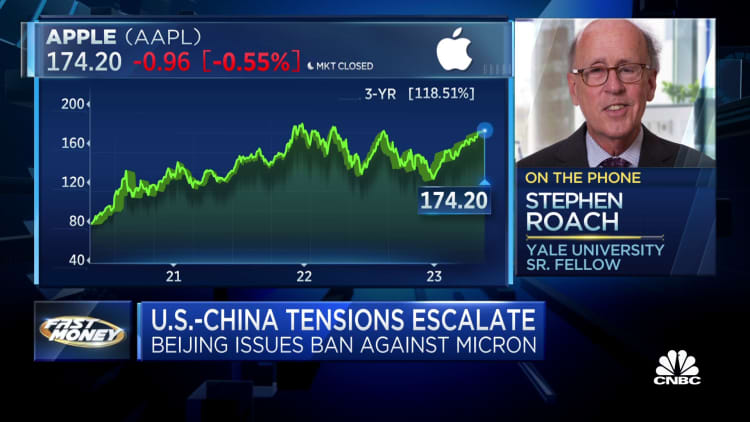
Xie Feng, China’s new ambassador to the U.S., addresses the media as he arrives at JFK airport in New York City, May 23, 2023.
Brendan McDermid | Reuters
China’s new ambassador to the U.S. arrived in New York Tuesday with a call to “safeguard the interests of China,” according to a release from the country’s embassy in the U.S.
Xie Feng assumes office after a period of about six months in which China has had no ambassador to the U.S. He was most recently a vice foreign minister.
Xie said Tuesday the bilateral relationship faces “serious difficulties and challenges,” and his mission is to “enhance China-U.S. exchanges and cooperation,” the release said in English.
The U.S. Department of State did not immediately respond to a CNBC request for comment.
The prior ambassador, Qin Gang, was promoted in December to become China’s new foreign minister. Earlier this month, Qin met U.S. Ambassador to China Nicholas Burns in Beijing for the first time.

Tensions between the two countries escalated in February after the U.S. shot down an alleged Chinese spy balloon over American airspace. U.S. Secretary of State Antony Blinken had planned to visit Beijing around that time, but decided to postpone the trip after the balloon incident.
Over the weekend, U.S. President Joe Biden said those tensions would “begin to thaw very shortly.”
“We’re not looking to decouple from China, we’re looking to de-risk and diversify our relationship with China,” Biden told reporters following the Group of Seven meeting in Hiroshima, Japan, according to a White House transcript.
The most optimistic scenario for a ‘thaw’ is simply a halt in the decline of relations.
He did not discuss potential new rules limiting U.S. businesses’ investment in advanced Chinese technology.
“The most optimistic scenario for a ‘thaw’ is simply a halt in the decline of relations,” Gabriel Wildau, managing director at consulting firm Teneo, said in a note. “For financial markets and multinational companies operating in China, however, such a halt would be significant.”
“Even absent concrete policy changes, a general sense that the downward spiral has stopped could reduce risk perceptions and unlock new investment.”
